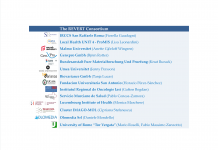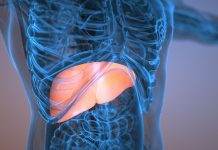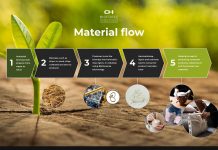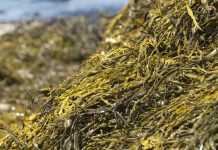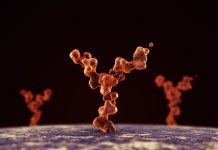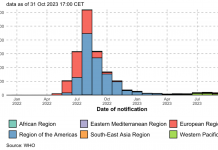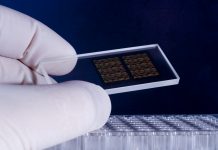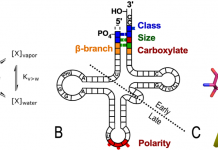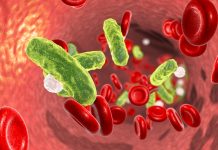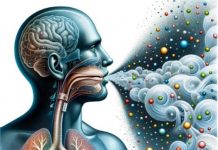Open Access Government produces compelling and informative news, publications, eBooks, and academic research articles for the public and private sector looking at health, diseases & conditions, workplace, research & innovation, digital transformation, government policy, environment, agriculture, energy, transport and more.
Home 2024
Archives
The European Revert Project: Assisting clinicians in patient treatment
Starting in January 2020, the European REVERT project is now in its final phase. The project blends predictive medicine and AI to enable clinicians to quickly and adequately treat patients.
Offender-led religious movements: Why we should have faith in prisoner-led reform
Byron R. Johnson and Sung Joon Jang, both from Baylor University and Pepperdine University, suggest that the solution to criminal justice reform could lie in the prisoner-led faith programmes, which provide positive, cost-efficient rehabilitation.
Hydrogen therapy for liver surgery: Current insights and future prospects in ischemia-reperfusion injury
Prof. Giovanni Brandi1,2 and Dr. Simona Tavolari1 of the 1 Medical Oncology, IRCCS Azienda Ospedaliero-Universitaria di Bologna, Bologna, Italy; 2Department of Medical and Surgical Sciences, University of Bologna, Bologna, Italy, discuss ischemia-reperfusion injury in hepatic surgery, and the potential to prevent it through hydrogen-therapy.
The extent and impact of the opioid crisis in Canada
The opioid crisis in Canada has been an issue for nearly a quarter of a century. Here, Norm Buckley and Jason Busse from the Michael G DeGroote Institute for Pain Research and Care, and the National Pain Centre discuss the issue, its effects both general and on specific communities, and what can be done about it.
CH-Bioforce strives for a cleaner world with unique bioforsense technology
In this interview, Petri Tolonen, CEO of CH-Bioforce, sheds light on the environmental benefits of Bioforsense technology.
Promoting fathers’ mental health and involvement
Promoting fathers’ mental health and father involvement – a call to action is given here by Deborah Da Costa, Ph.D., Associate Professor at the Department of Medicine, McGill University, and Scientist at McGill University Health Centre.
Algae4IBD Project: Are algae the solution for inflammatory bowel disease
The Algae4IBD project seeks effective treatments for a chronic disease affecting 6.8 million people. Juan F. Samaniego explores whether algae are the definitive solution for inflammatory bowel diseases.
High-resolution snapshots of antibody repertoires as potential correlates of protection
Klaus Eyer from ETH Zurich describes high-resolution snapshots of antibody repertoires as potential correlates of protection.
MPOX: Research priorities for threat reduction
Concerted efforts are needed to close knowledge gaps around mpox to improve preparedness and response efforts for this neglected disease.
Neutrino production in proton-proton collisions supports the rotating lepton model
Direct observation of neutrino production in proton-proton (pp) collisions at CERN LHC lend strong support to the Rotating Lepton Model, Constantinos G. Vayenas(1), Dionysios Tsousis(1,2) and Eftyhia Martino1 ((1)University of Patras, (2)Stanford University) tell us.
Microfluidic microbial bioreactors: How studying microbes at the microscale can help empower microbiology
Long before the existence of microbes was known, humans were unknowingly harnessing their power through practices such as brewing, bread leavening, or cheesemaking. These processes extended the shelf life of food, enhanced its nutritional value, and significantly contributed to the advancement of industry and civilization.
tRNA: The operational RNA code and protein folding
Charles W. Carter, Jr., from the Department of Biochemistry and Biophysics, University of North Carolina at Chapel Hill, relates molecular recognition used in genetic coding to structures of aminoacyl-tRNA synthetases and their cognate tRNAs.
Digital Life Norway (DLN) Initiative to foster and boost transdisciplinary biotechnology research and innovation
Meeting the rapid developments in biotechnology by fostering transdisciplinarity, including digitalisation and big data, to create convergence for innovation in a virtual centre.
Harnessing nature for more sustainable food systems
Markus Wyss and Ian Carr emphasize the importance of nature-positive innovations to address the pressing environmental challenges.
Bio-manufacturing: The future of food production
The future of food production is bio-manufacturing. Here, we discover Multus is helping it scale.
Sepsis and the killer platelets
Dermot Cox BSc, PG Dip Ed, PhD, Pharmacology Lead from the School of Pharmacy and Biomolecular Sciences – RCSI University of Medicine & Health Sciences, discusses sepsis and the killer platelets.
ECHO: Engaging citizens in soil health and science
Here, we learn about the ECHO project, coordinated by Soil Scientist Prof Tanja Mimmo of the Free University of Bozen-Bolzano, Italy.
Revolutionising disease detection: The emergence of non-invasive VOC breathomics
Breathomics marks a revolutionary approach to disease detection by analyzing the chemical composition of exhaled breath.
Sustainable marine technologies and innovation – TFI Marine SeaSpring
TFI Marine places sustainable marine technologies and innovation under the spotlight, starting with a look at floating offshore wind.
Mongolia and the One Health Approach
Mongolia’s unique ecosystems and cultures come with an equally unique set of wildlife management challenges.

